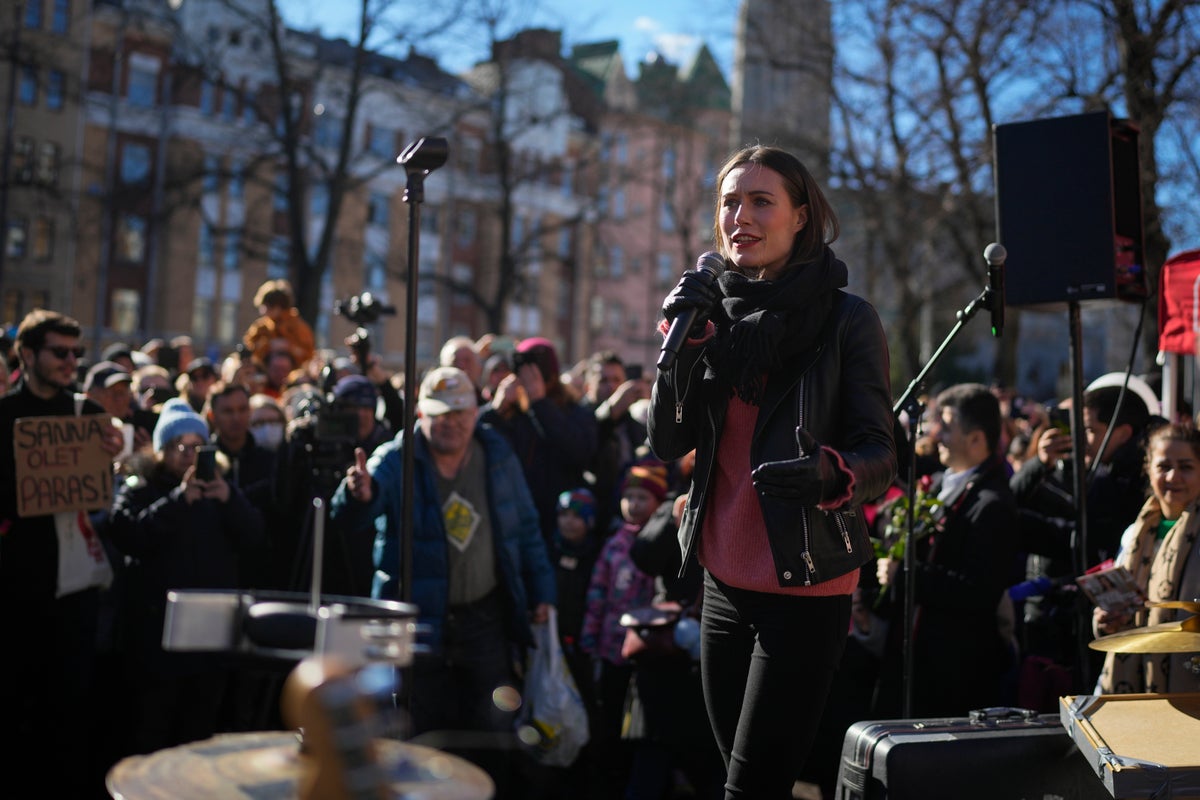
Polling stations opened Sunday in Finland, where three parties were expected to be in a tight race as Prime Minister Sanna Marin’s Social Democrats fight to secure a second term running the government.
Over 2,400 candidates from 22 parties were vying for the 200 seats in the Nordic country's parliament, the Eduskunta.
Marin, who at age 37 is one of Europe’s youngest leaders, has received praise for her Cabinet’s handling of the COVID-19 pandemic and for her prominent role, along with President Sauli Niinistö, in advocating for Finland’s successful application to join NATO. Her vocal support of Ukraine in the last year has increased her international visibility.
“Of course we hope that the Social Democrats will win this election ... It’s so important because we want to stay an open society. We also want to work together internationally. We want to build a better green sustainable future where people have the same opportunities in life," Marin told the Associated Press while campaigning Saturday in central Helsinki.
Marin remains popular at home but her party’s views on the Finnish economy, which emerged as the main campaign theme, were being challenged by two main opponents: the center-right National Coalition Party led by Petteri Orpo and the right-wing populist The Finns party, which is led by Riikka Purra.
“The most important thing in the next government is to fix our economy, push economic growth, balance public economy. And the second very important issue is to build up NATO-Finland," Orpo told the AP during a campaign event in Espoo, just outside the capital, on Saturday.
Riikka Purra stressed that the The Finns would focus on shaping Finland's migration, climate, criminal and energy policies if the populist party become a partner in the next government.
“And we also want to tighten up our attitude towards the European Union,” Purra said during a campaign event in the municipality of Kirkkonummi, her home district located some 45 kilometers (28 miles) west of Helsinki.
Recent polls indicated each of the three parties could take about 20% of the vote. If that happens, no party would be in position to form a government alone; whichever one wins the most votes is expected to begin talks in the next few days on forming a governing coalition.
Finland, which is expected to join NATO in the coming weeks, is a European Union member with a population of 5.5 million.
Polls close at 1700 GMT (12 p.m. Eastern. Initial results are expected by midnight.







